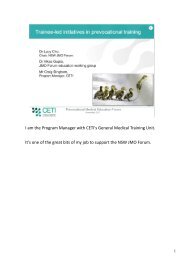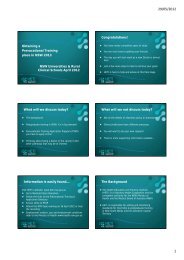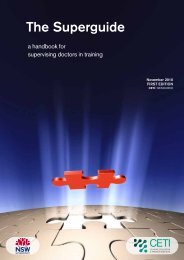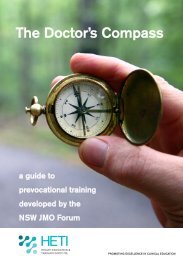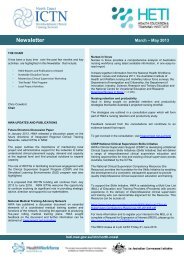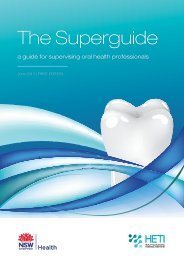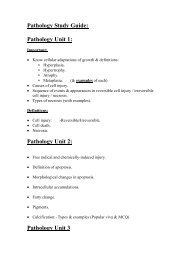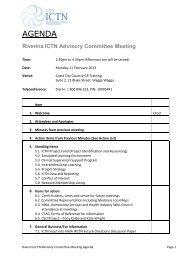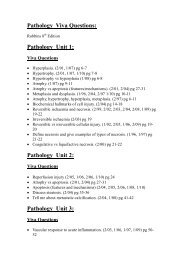a handbook for supervising allied health professionals - HETI - NSW ...
a handbook for supervising allied health professionals - HETI - NSW ...
a handbook for supervising allied health professionals - HETI - NSW ...
You also want an ePaper? Increase the reach of your titles
YUMPU automatically turns print PDFs into web optimized ePapers that Google loves.
THE SUPERGUIDE<br />
Teaching non-clinical skills<br />
Time management and setting priorities<br />
One of the hardest skills to master is the effective prioritisation of clinical work to meet the<br />
needs of patients and service demands. This is a skill which takes time to develop and is<br />
often difficult even <strong>for</strong> the most experienced clinicians. An inability to effectively prioritise<br />
workload can leave clinicians feeling overwhelmed and overlooking essential tasks which<br />
need to be completed to facilitate the delivery of safe patient care.<br />
56<br />
In addition, being a productive member of a discipline specific or multidisciplinary team<br />
also requires completion of administrative tasks, projects and quality improvement<br />
activities on top of day-to-day clinical work.<br />
In assisting the staff member to develop skills in time management and prioritisation,<br />
the supervisor can guide the person to implement some of the following strategies:<br />
• quarantining specific sections of the day <strong>for</strong> direct patient contact activities and<br />
back of house activities<br />
• managing unexpected interruptions and learning to say “no” or “at another time”<br />
when appropriate<br />
• prioritising patients in order of urgency/risk<br />
• creating “to do” and patient activity lists<br />
• scheduling time during each day to complete documentation tasks<br />
• allocating a specific time to make phone calls (eg, making phone calls in 15 minute<br />
blocks)<br />
• setting time aside to respond to emails/complete statistical requirements once a day<br />
• being flexible to reprioritise work on a daily or even hourly basis.



